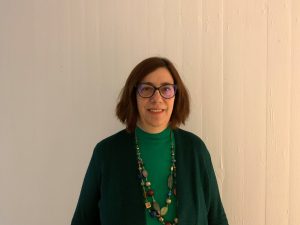Professor Judit Kormos
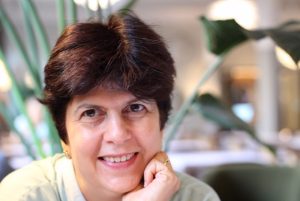 Judit Kormos is a Professor in Second Language Acquisition at Lancaster University. She was a key partner in the award-winning DysTEFL project sponsored by the European Commission and is a lead educator in the Dyslexia and Foreign Language Teaching massive open online learning course offered by FutureLearn. She is the co-author of the book Teaching Languages to Students with Specific Learning Differences with Anne Margaret Smith. She has published widely on the effect of dyslexia on learning additional languages including a book entitled The second language learning processes of students with specific learning difficulties. She is the author of multiple research papers that investigate the role of cognitive factors in second language acquisition.
Judit Kormos is a Professor in Second Language Acquisition at Lancaster University. She was a key partner in the award-winning DysTEFL project sponsored by the European Commission and is a lead educator in the Dyslexia and Foreign Language Teaching massive open online learning course offered by FutureLearn. She is the co-author of the book Teaching Languages to Students with Specific Learning Differences with Anne Margaret Smith. She has published widely on the effect of dyslexia on learning additional languages including a book entitled The second language learning processes of students with specific learning difficulties. She is the author of multiple research papers that investigate the role of cognitive factors in second language acquisition.
Link to the university profile: https://www.lancaster.ac.uk/linguistics/about/people/judit-kormos
Twitter: @juditkormos
Dr. Bimali Indrarathne
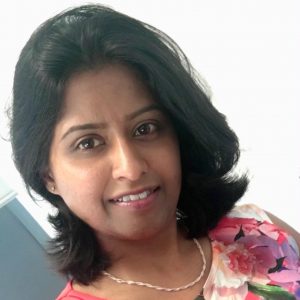 Bimali Indrarathne is a Lecturer in Applied Linguistics at the University of York, UK. Her research interests are second language acquisition, specific learning difficulties and teacher education. In her postdoctoral fellowship in 2016 she ran a teacher training project in Sri Lanka to raise English language teachers’ awareness on dyslexia and its consequences when learning a foreign language. Professor Kormos was the mentor of this project. Thereafter, she extended the training to other education sectors in Sri Lanka and currently she runs teacher training projects on SpLDs for primary teacher educators in Sri Lanka. She was also involved in Dyslexia and Foreign Language Teaching FutureLearn MOOC.
Bimali Indrarathne is a Lecturer in Applied Linguistics at the University of York, UK. Her research interests are second language acquisition, specific learning difficulties and teacher education. In her postdoctoral fellowship in 2016 she ran a teacher training project in Sri Lanka to raise English language teachers’ awareness on dyslexia and its consequences when learning a foreign language. Professor Kormos was the mentor of this project. Thereafter, she extended the training to other education sectors in Sri Lanka and currently she runs teacher training projects on SpLDs for primary teacher educators in Sri Lanka. She was also involved in Dyslexia and Foreign Language Teaching FutureLearn MOOC.
Link to the university profile: https://www.york.ac.uk/education/our-staff/academic/bimali-indrarathne/
Twitter: @DysEltsl
Dr. Anne Margaret Smith
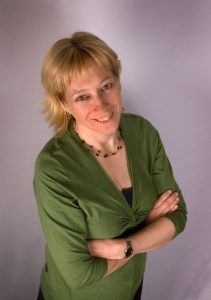
Dr Anne Margaret Smith has taught English for 30 years in Kenya, Germany, Sweden and the UK. She is also a dyslexia specialist tutor and assessor. She founded ELT well with the intention of bringing together best practice from the two fields of ELT and SpLD support, and now offers materials and training to teachers, as well as specialist teaching to dyslexic learners. She has worked with Judit Kormos on several projects, including the FutureLearn MOOC ‘Dyslexia and Foreign Language Teaching’. She is the co-ordinator of the IATEFL SIG: Inclusive Practices and SEN.
Find out more: www.ELTwell.com
Twitter: @amsELTwell
 Dr. Joanna Nijakowska
Dr. Joanna Nijakowska
Joanna Nijakowska is a University Professor in the Centre for Foreign Language Teacher Training and European Education, University of Warsaw, Poland. She was an initiator and co-ordinator of the award-winning (ELTons, European Language Label, Success Story) international DysTEFL and DysTEFL2 projects, co-financed by the European Commission. She was an educator on the Dyslexia and Foreign Language Teaching massive open online learning course offered by Future Learn. She is the author of the book Dyslexia in the Foreign Language Classroom. Her research focus is on dyslexia and inclusive foreign language classroom practices as well as foreign language teachers’ professional development needs, concerns and beliefs about inclusive teaching of students with specific learning difficulties.
Link to the university profile: http://cknjoiee.uw.edu.pl/prof-uw-dr-hab-joanna-nijakowska/
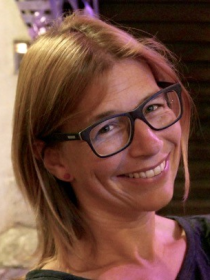 Dr. Marije Michel
Dr. Marije Michel
Associate Professor Marije Michel is Chair of Language Learning of the Department of European Languages and Cultures at Groningen University. Marije’s research and teaching focuses on second language acquisition, assessment and teaching. She is an expert on task-based language teaching (TBLT) and digitally-mediated communication in educational settings. Within the ENGaGE project, Marije was the academic advisor for the German material.
Website: https://www.rug.nl/staff/m.c.michel/research
Dr. Karmen Pižorn
Karmen Pižorn is Associate Professor of English in Education at the University of Ljubljana, Faculty of Education, Slovenia. She has been a key partner in many national and international projects focusing on young EFL learners, language assessment, multilingualism, and teaching foreign languages to students with specific learning differences, such as DysTEFL2, a successful continuation of the award-winning DysTEFL project. She has also co-authored research papers that investigated the effect of the input mode on reading comprehension of young EFL students with dyslexia.
Twitter: @pizornka
Dr. Milena Košak Babuder
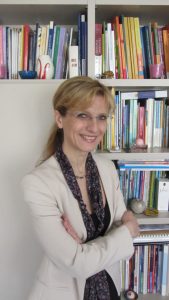 Milena Košak Babuder is an Assistant Professor of Special education at the University of Ljubljana Faculty of Education, Slovenia. Her fields of research are the exploration of the effects of general and specific learning difficulties, especially dyslexia, on educational performance of primary and secondary school students and the development of strategies and models of support and treatments in these areas. She co-authored research papers about the effect of the input mode on reading comprehension of young EFL students with dyslexia. She has been involved in various national and international projects on specific learning difficulties, including the DySTEFL2 project.
Milena Košak Babuder is an Assistant Professor of Special education at the University of Ljubljana Faculty of Education, Slovenia. Her fields of research are the exploration of the effects of general and specific learning difficulties, especially dyslexia, on educational performance of primary and secondary school students and the development of strategies and models of support and treatments in these areas. She co-authored research papers about the effect of the input mode on reading comprehension of young EFL students with dyslexia. She has been involved in various national and international projects on specific learning difficulties, including the DySTEFL2 project.
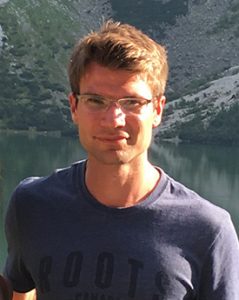 Michael Ratajczak
Michael Ratajczak
Michael Ratajczak is a PhD student in the Department of Linguistics and English Language at Lancaster University, funded by the UK’s Economic and Social Research Council (ESRC). His PhD is about reading comprehension of health-related texts. Michael is passionate about the use of Bayesian and frequentist multilevel models for inference in psycholinguistics. He co-authored research papers relating to second language acquisition, language testing, and behavioural science.
Dr. Ágnes Magnuczné Godó
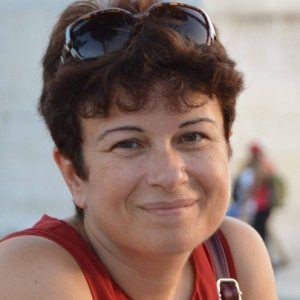 Ágnes is a teacher of English, teacher trainer and educator at the University of Miskolc, Hungary. Her fields of interest include reflexive practice in language teaching and teacher training, discourse and rhetorical analysis, webpage analysis, English as a Lingua Franca in ELT, and teaching foreign languages to learners with Special Educational Needs. In recent years she has participated in different projects targeting learners in socially disadvantaged regions of Northeast Hungary. The experiences gained during these schools visits increased my interest in learners with SEN. We have recentlz developed digital learning materials for learners with SEN in primary schools and for mixed-ability secondary school classes. I am the co-ordinator of the ENGaGE project.
Ágnes is a teacher of English, teacher trainer and educator at the University of Miskolc, Hungary. Her fields of interest include reflexive practice in language teaching and teacher training, discourse and rhetorical analysis, webpage analysis, English as a Lingua Franca in ELT, and teaching foreign languages to learners with Special Educational Needs. In recent years she has participated in different projects targeting learners in socially disadvantaged regions of Northeast Hungary. The experiences gained during these schools visits increased my interest in learners with SEN. We have recentlz developed digital learning materials for learners with SEN in primary schools and for mixed-ability secondary school classes. I am the co-ordinator of the ENGaGE project.
